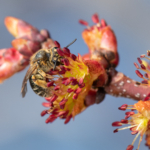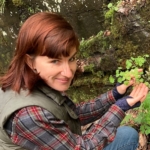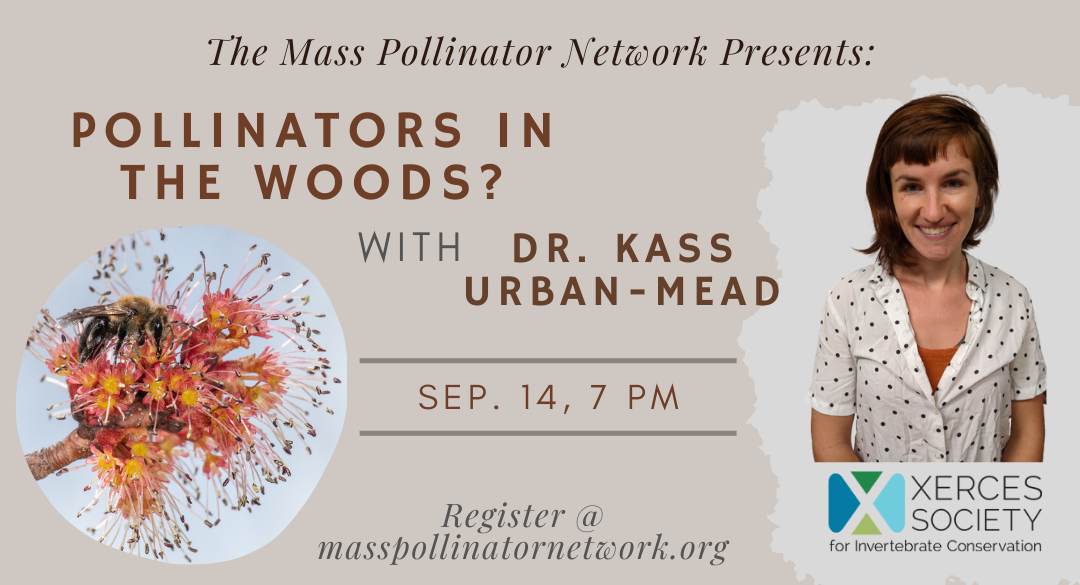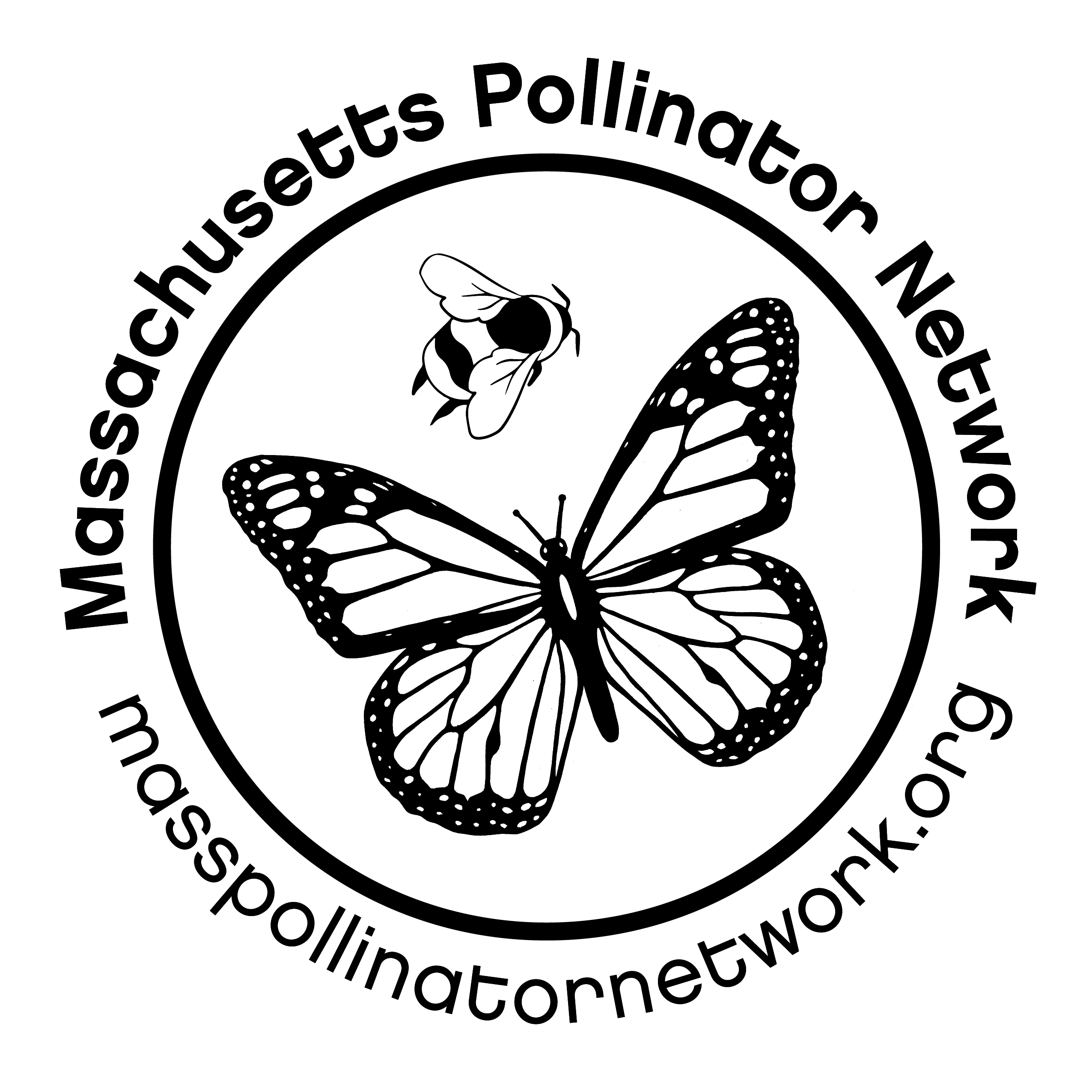Mass Pollinator Network Seminar Series Presents:
“Pollinators in the woods? How wild bees nest and forage in woody habitats, and what you can do to support them.“
with Dr. Kass Urban-Mead, Pollinator Conservation Specialist with the Xerces Society for Invertebrate Conservation
When: Wednesday September 14th, 2022
Where: Online via Zoom, **Register Here**
 Did you know that there are over 4,000 different wild bee species in the United States? Most are solitary, don’t live in hives, and don’t even make honey.
Did you know that there are over 4,000 different wild bee species in the United States? Most are solitary, don’t live in hives, and don’t even make honey.
These wild, native pollinators have long evolutionary relationships with our beloved wildflowers and also provide important pollination services for our favorite fruits, nuts, and vegetables.
Although we usually think of wild pollinating bees in our gardens, flower patches, and meadows (which is true!), that is not the only place they are found.
In fact, in the northeastern US, up to 1/3 of our wild bee species prefer and rely on forest habitats. Some are specialized to only collect pollen and nectar from spring ephemerals on the forest floor, while others nest in rotting logs and in leaf litter deep in the woods. This can also be important for agriculture — for example, when apple orchard pollinators are busily collecting forest canopy pollen before the apple orchards bloom!
Come join me for an adventure exploring how wild bees use the woods–from the leafy forest floor to the tippy top of the canopy. We will also discuss how forest management for healthy, diverse, climate-resilient woods is crucial not just for birds, but also bees.
 Kass‘ doctoral work in the Cornell Entomology Department characterized the wild bees active in early spring forests and forest canopies, and how the movement of bees between forests and orchards can support orchard pollination. Kass grew up raising 4-H dairy goats in the Hudson Valley. She completed a masters at Yale Forestry, worked for a summer at the Arnold Arboretum, and did ecological research in southern France. In her position with the Xerces Society, Kass Urban-Mead provides technical assistance on pollinator conservation in the Mid-Atlantic and Northeast region. As part of this work, she assists with planning, designing, installing, and managing habitat for pollinators and other beneficial insects. Kass also works with staff and research partners to develop technical guidelines and provide training on pollinator conservation practices.
Kass‘ doctoral work in the Cornell Entomology Department characterized the wild bees active in early spring forests and forest canopies, and how the movement of bees between forests and orchards can support orchard pollination. Kass grew up raising 4-H dairy goats in the Hudson Valley. She completed a masters at Yale Forestry, worked for a summer at the Arnold Arboretum, and did ecological research in southern France. In her position with the Xerces Society, Kass Urban-Mead provides technical assistance on pollinator conservation in the Mid-Atlantic and Northeast region. As part of this work, she assists with planning, designing, installing, and managing habitat for pollinators and other beneficial insects. Kass also works with staff and research partners to develop technical guidelines and provide training on pollinator conservation practices.




Leave A Comment